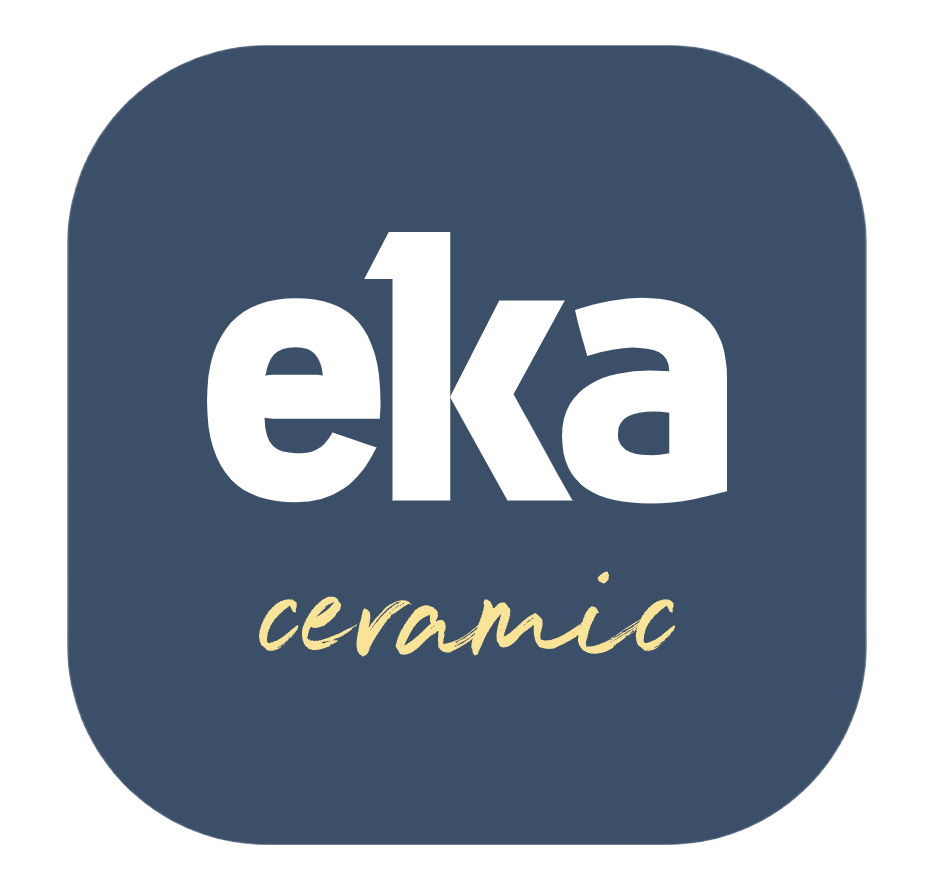As a leading global supplier of custom ceramic and porcelain tableware, EKA Ceramic understands that B2B buyers, whether large-scale retail chains or small-batch e-commerce sellers, face the challenge of choosing between different types of dinnerware. In this article, we will dive deep into the differences between porcelain and ceramic tableware to help B2B buyers make informed decisions tailored to their market needs. This guide is designed to optimize your purchasing strategy and meet the demands of various global markets.
Table of Contents
- I. Understanding Ceramic and Porcelain Tableware
- II. Key Differences Between Porcelain and Ceramic Tableware
- III. Choosing Between Porcelain and Ceramic: What B2B Buyers Need to Know
- IV. Porcelain vs. Ceramic: Global Market Trends and E-commerce Insights
- V. Global Market: Countries with the Highest Demand for Porcelain Tableware
- V. EKA Ceramic’s Competitive Advantage in Global Markets
I. Understanding Ceramic and Porcelain Tableware
Before exploring the differences, it’s essential to understand what these materials are and how they are made.
Ceramic dinnerware is an umbrella term that includes several types of materials, such as earthenware, stoneware, and porcelain. Ceramics are made by firing clay at various temperatures, which results in a wide range of textures and durability levels.
Porcelain, on the other hand, is a specialized type of ceramic that uses refined kaolin clay and is fired at much higher temperatures (above 1,200°C). This process makes porcelain denser, more durable, and less porous than regular ceramic, giving it a finer and more luxurious finish.
II. Key Differences Between Porcelain and Ceramic Tableware
While porcelain and ceramic tableware may appear similar, their differences can impact their performance, cost, and market suitability. Here is a detailed comparison:
| Category | Porcelain | Ceramic |
|---|---|---|
| Material Composition | Refined kaolin clay, fired at high temperatures | General clay, fired at lower temperatures |
| Durability | Highly durable, chip-resistant | Less durable, prone to chipping |
| Water Absorption | Very low (non-porous) | Higher (more porous) |
| Weight | Lightweight and thinner | Heavier and thicker |
| Aesthetic | Elegant, glossy finish | Rustic, varied textures |
| Price | Higher cost, premium segment | More affordable, diverse price range |
What is the difference between china, porcelain and bone china? a quick answer
III. Choosing Between Porcelain and Ceramic: What B2B Buyers Need to Know
3.1 Durability and Maintenance
Porcelain tableware is known for its exceptional durability, making it a popular choice in high-end restaurants, hotels, and for special occasions. Its non-porous surface prevents moisture absorption, reducing the risk of cracking or staining over time. This makes porcelain ideal for dishwasher and microwave use.
In contrast, ceramic dinnerware, especially earthenware, is more prone to chipping and breakage due to its lower firing temperature. However, it offers a rustic charm and affordability that appeals to mid-range consumers and casual dining establishments.
Best For:
- Porcelain: High-end restaurants, luxury hotels, premium retail.
- Ceramic: Casual dining, home use, budget-friendly retail markets.
3.2 Aesthetic and Market Preferences
Porcelain is known for its elegant, translucent appearance and is often used in fine dining settings to elevate the dining experience. It is ideal for creating minimalist, modern, and luxury-themed table settings.
Ceramic tableware, with its versatile designs and rustic charm, suits more eclectic and traditional settings. This makes it a favorite among consumers who value handcrafted aesthetics and unique designs.
Best For:
- Porcelain: Luxury gift items, premium packaging for high-end retailers.
- Ceramic: Seasonal collections, colorful designs for home goods stores.
IV. Porcelain vs. Ceramic: Global Market Trends and E-commerce Insights
In choosing between porcelain and ceramic, B2B buyers should consider not only the product features but also the global market demand and e-commerce performance.
4.1 Differences in End-Market Preferences
| Market Segment | Ceramic (Ceramic) | Porcelain (Porcelain) |
|---|---|---|
| Household Market | More popular among average households for its affordability | Preferred by upscale households for aesthetics and quality |
| Food Service Industry | Favored by budget-friendly restaurants | Commonly used in luxury hotels and fine dining establishments |
| Gift Market | Ideal for diverse gift customization, cost-effective | Preferred for high-end gifts, especially custom commemorative items |
| Supermarket Retail | Primarily sells ceramic tableware for mass consumers | Found mainly in premium stores and boutiques |
| Cross-border E-commerce | High sales volume on Amazon and eBay | More popular on platforms like Lazada, targeting Japan and European markets |
On platforms like Amazon and AliExpress, ceramic tableware dominates due to its affordability and variety. However, porcelain, with its luxurious appeal, sees stronger sales in markets like Europe and Japan, where consumers prioritize quality and aesthetics.
4.2 Performance on E-commerce Platforms
- Ceramic Dinnerware: Leading sales on platforms such as Amazon and Walmart, especially for everyday use. Its affordability and diverse design options make it a staple for most households in North and South America.
- Porcelain Dinnerware: Performing well on niche platforms like Rakuten and Lazada, especially in regions like Europe, Japan, and Korea, where the demand for high-quality, premium dinnerware is high.
Data Analysis: Ceramic dinnerware accounts for 60% of total sales on major e-commerce platforms, while porcelain captures 30% of the high-end segment, particularly appealing to quality-conscious consumers.
V. Global Market: Countries with the Highest Demand for Porcelain Tableware
Porcelain’s luxurious quality makes it a favorite in various markets worldwide. For B2B buyers, understanding these regional preferences can optimize sourcing strategies.
5.1 Global Distribution of Porcelain Demand
| Country/Region | Preference for Porcelain | Market Share |
|---|---|---|
| Europe (Germany, France, Italy) | Widely used in high-end restaurants and hotels | 45% |
| Japan | Strong demand for household use and gifting | 20% |
| China | Dominates in high-end hotels and traditional gifting markets | 15% |
| USA | Increasing demand in fine dining and bespoke home collections | 10% |
| Middle East (UAE, Saudi Arabia) | High demand for luxurious, ornate designs | 5% |
| Other Markets | Used primarily for high-end giftware | 5% |
5.2 Regional Market Insights
- European Market: In countries like Germany, France, and Italy, porcelain tableware is extensively used in luxury dining and hospitality sectors, accounting for nearly 45% of the total market share. Buyers in this region prioritize elegant, timeless designs.
- Japanese Market: Japanese consumers are known for their appreciation of fine craftsmanship, making porcelain a popular choice for household dining and ceremonial gifts. Japan’s market share stands at 20%, with buyers often seeking delicate patterns and superior quality.
- Chinese Market: As the birthplace of porcelain, China maintains a strong demand, particularly in high-end hotels and corporate gifting. Porcelain accounts for 15% of the market, with an emphasis on cultural motifs and custom designs.
- American Market: The demand for porcelain in the US is growing, especially in luxury homeware and boutique restaurants. B2B buyers focus on minimalist designs that align with contemporary trends, capturing about 10% of the global market.
- Middle Eastern Market: In countries like the UAE and Saudi Arabia, there is a strong preference for luxurious, ornate porcelain used in grand events and upscale households, contributing to 5% of the global demand.
V. EKA Ceramic’s Competitive Advantage in Global Markets
As a trusted manufacturer of ceramic and porcelain dinnerware, EKA Ceramic has established a robust presence in multiple global markets. Our commitment to high-quality production, efficient supply chains, and flexible customization options makes us a preferred partner for B2B buyers worldwide.
Our key strengths include:
- Customization Services: We offer both ODM and OEM services to cater to diverse market needs.
- Rapid Fulfillment: Leveraging our global supply chain, we ensure timely delivery of large and small orders.
- Consistent Quality: With stringent quality control measures, we guarantee the highest standards in every product.
Whether you are a large retail chain or a specialized e-commerce seller, EKA Ceramic is your go-to source for premium dinnerware solutions. Contact us today to explore our wide range of customizable products tailored to your business needs!

